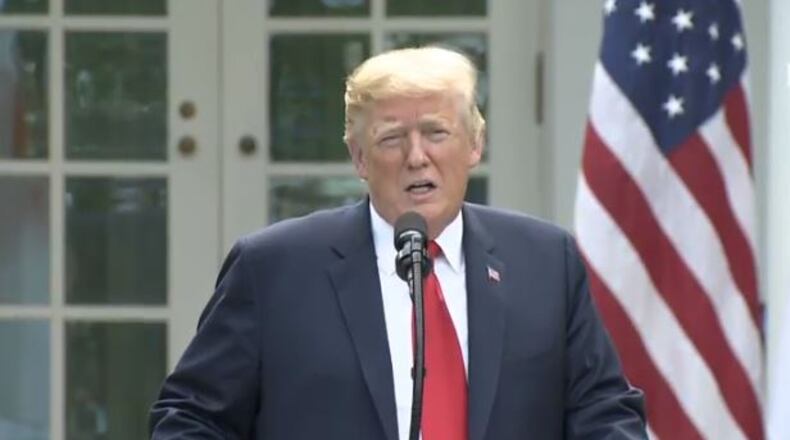After leaving the summit of G-7 nations early in Quebec, President Donald Trump and his aides verbally barbequed the Canadian Prime Minister this weekend, plunging relations between Ottawa and Washington to maybe their lowest point in history.
"There’s a special place in hell for any foreign leader that engages in bad faith diplomacy with President Donald J. Trump," said Mr. Trump's top trade advisor Peter Navarro on Fox News Sunday, as he joined in attacking Canadian Prime Minister Justin Trudeau for basically saying that he would stand up to new tariffs levied by President Trump.
Meanwhile on CNN, top White House economic adviser Larry Kudlow amplified those tough words, saying President Trump is "not going to let a Canadian prime minister push him around," amplifying a pair of tough tweets from the President on Saturday that were aimed at Trudeau, as Mr. Trump left the G-7 summit early.
While the U.S. and Canada have had their share of trade disputes over the past forty years - in agriculture, softwood lumber, autos, and other areas - the tone and ferocity of the attacks had never reached this point.
"Trump calls Trudeau 'dishonest and weak,'" boomed the headline on the Globe and Mail.
"Canada-U.S. relations reach new low," headlined the Toronto Star.
"I don't understand the obsessions with trade relations with Canada," said Stephen Harper, the former conservative Prime Minister of Canada who was Trudeau's predecessor, as Harper told Fox News that Mr. Trump's complaints were misguided. "This is the wrong target."
Mr. Trump launched his Twitter salvos after he had left the G-7 summit, accusing the Canadian Prime Minister of making 'false statements' about the ongoing trade dispute between the U.S and Canada, as the President recently placed new tariffs on steel and aluminum imported from Canada, Mexico and Europe.
The White House has cast the effort as a move by the President to exert leverage on those nations, in an effort to open their markets more to U.S. goods, and to reduce trade barriers.
But Canada, Mexico, and Europe have not given an inch.
"We will not be pushed around," the Prime Minister Trudeau said on Saturday.
On Sunday, Trudeau ignored questions from reporters about the latest attacks, as the President left the G-7 in turmoil, and raised new questions about a broader trade war erupting with American allies.
Trudeau and French President Emmanuel Macron had already registered their public displeasure with the tariffs, which were done for "national security" purposes - something the two leaders said should be reserved for enemies of the United States.
In Congress, the President's refusal to sign a general communique of the G-7 nations rankled lawmakers in both parties.
"It seems to me, not to sign a statement of solidarity which stands for everything that we stand for, is a big mistake," said Sen. Dianne Feinstein (D-CA) on CNN. "But to walk away from our allies in this way, I think, is a mistake.”
"With every brash tweet, President Trump concedes the US's role as leader of the free world," said Rep. Gregory Meeks (D-NY).
"Ever wonder why @realDonaldTrump is so much tougher on Canada and the rest of America’s real allies than he is on Russia," said Rep. Lacy Clay (D-MO).
The President had stirred the G-7 even before he arrived on Friday, by publicly saying that Russia should be readmitted to the group; Moscow was booted after annexing Crimea.
About the Author
The Latest
Featured



